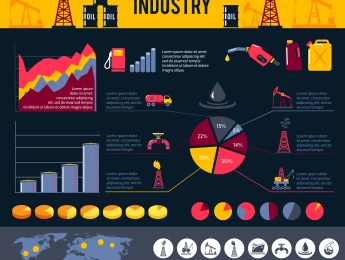This intensive and practical course provides a comprehensive understanding of the EU Corporate Sustainability Reporting Directive (CSRD) and the European Sustainability Reporting Standards (ESRS), equipping professionals with the knowledge and tools required to comply with the evolving European sustainability disclosure landscape.
Participants will gain hands-on insights into how to interpret, design, and implement sustainability reporting frameworks that meet CSRD and ESRS requirements, ensuring transparency, accountability, and alignment with EU taxonomy and international standards such as GRI, SASB, and TCFD.
The course blends regulatory analysis with real-world application from double materiality assessments to data collection and assurance empowering participants to build robust sustainability reporting systems that drive value creation and long-term impact.
By the end of this course, participants will be able to:
- Understand the key principles and regulatory requirements of the CSRD and ESRS.
- Conduct double materiality assessments in line with EU guidelines.
- Design effective sustainability reporting systems aligned with corporate strategy.
- Collect, manage, and disclose sustainability data in accordance with ESRS metrics.
- Ensure compliance, assurance readiness, and stakeholder transparency in sustainability reporting.
This course is ideal for:
- Sustainability, ESG, and CSR Managers.
- Finance and Compliance Executives.
- Reporting and Audit Professionals.
- Corporate Communications and Investor Relations Managers.
- Consultants, Policy Advisors, and Risk Officers involved in EU regulatory compliance.
The course combines interactive lectures, regulatory briefings, and case-based learning. Participants will engage in workshops using practical reporting templates, data mapping tools, and double materiality exercises aligned with EU requirements.
Day 5 of each course is reserved for a Q&A session, which may occur off-site. For 10-day courses, this also applies to day 10
Section 1: The EU Sustainability Landscape and CSRD Overview
- Evolution of sustainability reporting in the EU.
- Objectives, scope, and timeline of the Corporate Sustainability Reporting Directive (CSRD).
- Key differences between CSRD and previous NFRD (Non-Financial Reporting Directive).
- The relationship between CSRD, EU Taxonomy, and the Green Deal.
- Legal obligations and phased implementation roadmap.
Section 2: Introduction to ESRS – European Sustainability Reporting Standards
- Understanding the structure and categories of ESRS (Cross-cutting & Topical).
- Overview of ESRS 1 (General Requirements) and ESRS 2 (General Disclosures).
- Environmental Standards: ESRS E1–E5 (Climate, Pollution, Water, Biodiversity, Resources).
- Social Standards: ESRS S1–S4 (Workforce, Value Chain, Consumers, Communities).
- Governance Standards: ESRS G1 (Business Conduct).
- Practical guidance for integrating ESRS into existing reporting processes.
Section 3: Double Materiality and Data Management
- Understanding double materiality: impact materiality vs. financial materiality.
- Conducting materiality assessments and stakeholder engagement.
- Prioritising topics and aligning with corporate risk and strategy.
- Data collection methodologies, sources, and validation.
- Tools for sustainability data management and automation.
Section 4: Reporting Frameworks, Metrics, and Disclosure Requirements
- Aligning ESRS disclosures with GRI, SASB, TCFD, and ISSB frameworks.
- Setting KPIs and quantitative metrics for environmental and social performance.
- Writing structured, transparent sustainability reports.
- Integrating CSRD-compliant disclosures into annual financial reports.
- Case studies: examples of best practices from leading EU companies.
Section 5: Assurance, Audit, and Future Readiness
- Understanding assurance requirements under CSRD.
- Preparing for limited and reasonable assurance audits.
- Governance and oversight for ESG data integrity.
- Leveraging technology for reporting efficiency and accuracy.
- Future outlook: interoperability with global sustainability frameworks (ISSB & SEC).
Upon successful completion of this training course, delegates will be awarded a Holistique Training Certificate of Completion. For those who attend and complete the online training course, a Holistique Training e-Certificate will be provided.
Holistique Training Certificates are accredited by the British Accreditation Council (BAC) and The CPD Certification Service (CPD), and are certified under ISO 9001, ISO 21001, and ISO 29993 standards.
CPD credits for this course are granted by our Certificates and will be reflected on the Holistique Training Certificate of Completion. In accordance with the standards of The CPD Certification Service, one CPD credit is awarded per hour of course attendance. A maximum of 50 CPD credits can be claimed for any single course we currently offer.
- Course Code PO2 - 136
- Course Format Classroom, Online,
- Duration 5 days










